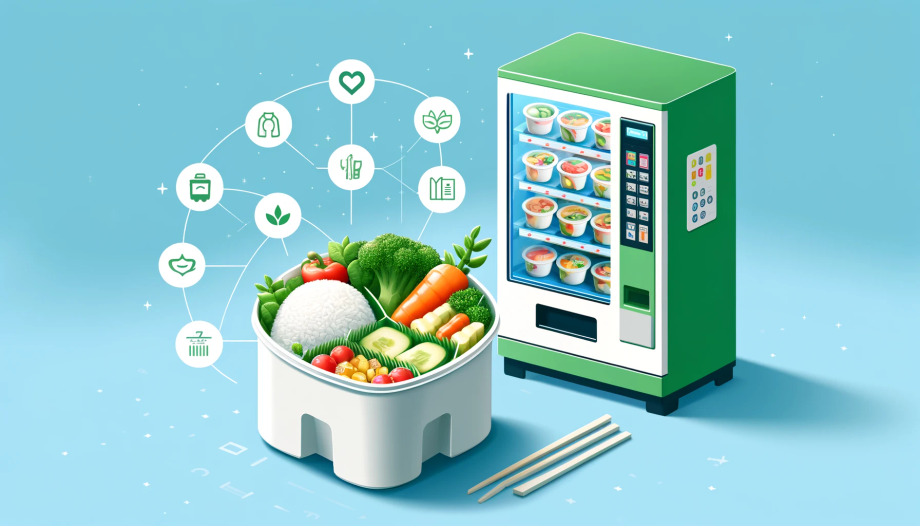This is an AI translated post.
Innovative Frozen Meal Solutions Reduce Food Waste: Why They're Gaining Attention
- Writing language: Korean
- •
-
Base country: All countries
- •
- Food
Select Language
Summarized by durumis AI
- A greengrocer in Okayama Prefecture, Japan, is contributing to reducing food waste by making and selling frozen meals using vegetables that are about to expire or are surplus.
- Frozen meals are sold through 24-hour vending machines and are gaining popularity among young people due to their convenience, nutritional balance, and innovative technological development.
- Especially, a company called Dento Labo contributes to revitalizing the local economy through the development of frozen meals using local ingredients, contributing to solving the food waste problem and sustainable development.
Amidst the growing social concern over food waste, a greengrocer in Okayama Prefecture, Japan, sought to utilize leftover or spoiled vegetables by processing them into processed foods. This initiative led to the creation of frozen bento boxes, a collaboration between the greengrocer and a housewife with a management nutritionist qualification, 43-year-old Seki Katsunori.

Image Source: ChatGPT 4o
Seki has been engaged in research and development of frozen rice for a long time, so he entrusted the housewife with the task of cooking and packaging the vegetables received from the greengrocer into flavors that complement rice. These frozen bento boxes are sold through 24-hour vending machines, making them accessible at any time.
Seki emphasizes that "just because vegetables are deemed unsuitable for standards and discarded doesn't mean they are low in nutritional value." By utilizing these potentially wasted ingredients, valuable resources can be created. This initiative contributes to achieving SDG Goal 12, "responsible consumption and production."
Seki hopes that his frozen bento box business will not only reduce food loss but also contribute to achieving SDG goals. With the recent surge in demand for Chinese cuisine, major supermarkets have been intensifying their frozen bento box sales, gaining popularity among those who struggle with consistent cooking due to its convenience. Moreover, nutritionally balanced bento boxes are also gaining attention driven by health-conscious trends.
Previously, frozen bento boxes were primarily utilized for delivery services targeting elderly individuals or those with dietary restrictions. However, the user base has recently expanded to include pregnant women, families with infants, and single-person households. They are also used for weight management or muscle building. The convenience of individual packaging allows users to take out only the necessary portion, minimizing waste.
Frozen bento boxes made with the latest technology offer a distinct flavor and texture compared to their predecessors. While frozen meals used to often lose their taste upon thawing, they now allow you to enjoy a dining experience comparable to that of a restaurant. Dishes developed by renowned chefs or regional specialties can now be easily enjoyed at home.
For a long time, frozen bento boxes lacked significant innovation. The recent advancements mark a shift after nearly 40 years. The key difference lies in the reversed approach – "experience to product" – as opposed to the conventional model. While the food industry has traditionally focused on "offering experiences from products," the frozen bento box case is different. User experience is prioritized, and products are designed accordingly. This represents a novel approach to product development.
Leading this change is a company called "Dento Labo (Tokyo Bento Labo)," envisioning a future of "convenient and fresh frozen bento boxes 4.0." They are constantly innovating and receiving recognition for their contributions to regional economic revitalization by utilizing local ingredients.
In conclusion, frozen bento boxes deserve attention from the perspectives of food loss, SDG achievement, convenience and nutritional balance, and innovative product development. They are poised to become a new frontier in the food industry.





